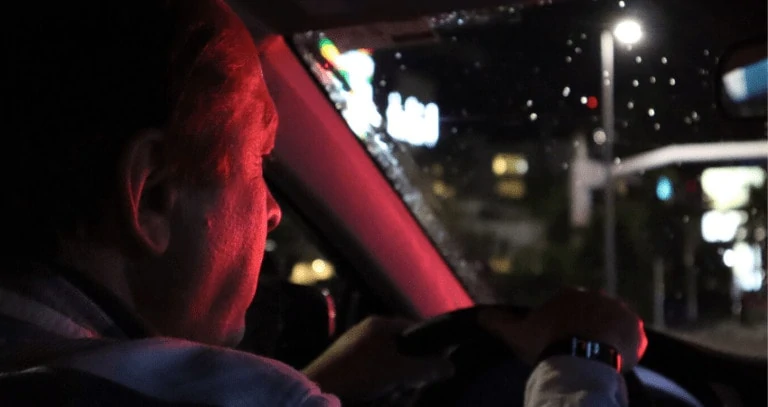During the winter months, shorter days and longer nights means that more drivers will have to make their commutes in the dark. Driving at night is more dangerous than driving during the day, and according to the National Highway Traffic Safety Administration (NHTSA), fatal collisions are three times more likely to happen at night.
Why is it more hazardous to drive at night or before sunrise? Naturally, it is more difficult to see the road clearly in the dark than it is in broad daylight. Also, the glare from other vehicles’ headlights, streetlights, and traffic signals can cause momentary visual distractions and can affect your night vision.
While these brief lighting changes might seem slight, think of it this way: if you’re traveling at 60 miles per hour, you’re covering a distance of 88 feet per second. Even a moment’s distraction or blindness could lead to a serious injury or crash.
Other Causes of Nighttime Driving Issues
We’ve mentioned two factors that can affect your ability to see while driving at night, and here are a few additional things to consider:
Age-related sight issues – Our night-vision worsens as we get older. Our lenses become stiffer and cloudier as we age, and the light-sensitive cells in our eyes that help us distinguish between light and dark (known as rods) begin to die off. Also, the light-receptors on the rods we still have do not regenerate as fast as they once did when we were younger. Other age-related sight issues, including astigmatism, can impact our ability to gauge distance and depth and can affect our peripheral vision.
Eye fatigue – At night or in the early morning, we might be more likely to suffer from eye strain or ocular fatigue (scientifically referred to as Asthenopia). Straining to see in dark or dim surroundings, exposure to bright lights or glare, and other factors could cause asthenopia. This condition is not serious and goes away with adequate rest, but can be very dangerous if you experience it while behind the wheel.
Unaddressed vision problems – For some, vision problems that have not yet been diagnosed or treated can become worse at night, particularly when driving. If you have noticed that your vision is blurry, cloudy, dim, or if you notice “halo effects,” you’ll want to address it right away. These vision issues can further impair your ability to see at night and could have serious consequences for your health and the safety of your passengers and others on the road.
Coping With Impaired Vision While Driving at Night
Driving at night can be dangerous for anyone, especially those with existing vision issues. There are a few things that can be done to help improve your night vision. If you suspect vision impairment, you should schedule an appointment with your ophthalmologist to obtain a proper diagnosis and a prescription for glasses or contact lenses. This can greatly improve your ability to see at night.
Other tips that can help with improved vision at night:
- Always keep your eyeglasses prescriptions up-to-date
- Elect for cataract surgery if your vision is significantly impaired by the clouding of your eye’s lenses
- Get plenty of rest and avoid eye strain from prolonged use of digital devices before driving
Contact Florida Eye Specialists Today
Are you having trouble seeing while driving at night? If so, turn to the Florida Eye Specialists for help. Our board-certified physicians have the experience necessary to find the right solution for your vision concerns. It’s our goal to make sure that each and every patient feels confident in their vision behind the wheel, so contact us to schedule an appointment today. We can be reached at 904-564-2020 and through our contact form.

